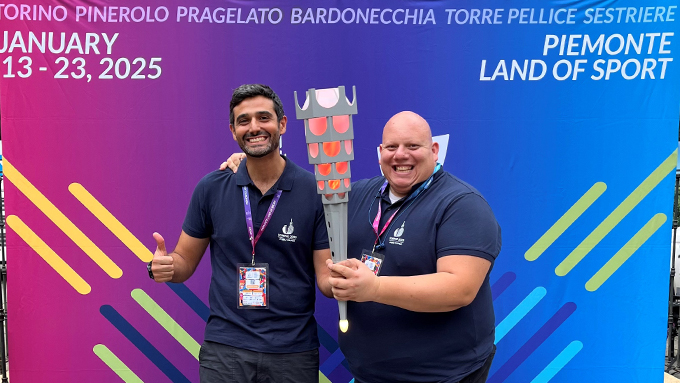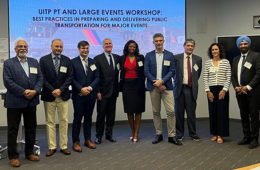In January 2025, Turin will host the Winter Universiade, an international university competition held every two years. For over a year, Citec has been supporting the Organizing Committee (WUG Torino 2025) and the International University Sports Federation in designing, planning, and managing the operational aspects of the transport plan.

The 32nd edition of the Winter Universiade will take place in Turin from January 13 to 23, 2025. The Universiade is an international multi-sport university competition, organized by the Organizing Committee (WUG Torino 2025) and the International University Sports Federation (FISU). This event is held every two years and, like the Olympic Games, alternates between Summer and Winter editions. For the 2025 edition, the capital of the Piedmont region has been chosen as the host city. Turin has previously hosted several Universiades, and Italy is welcoming the competition for the 32nd time. The sports program for the FISU Winter Games 2025 includes nine official sports and two optional sports (alpine skiing and ski orienteering). The Turin 2025 FISU Games present significant transportation challenges due to the mountainous terrain, the number of clusters and venues to be served, unpredictable weather conditions, and the level of transport services required for more than 6,000 accredited participants.
Universiade 2025: Citec brings its expertise
To address these challenges, the Organizing Committee (WUG Torino 2025) has commissioned Citec to develop and implement the mobility and transport plan necessary for the successful execution of the University Games. This plan follows a sustainable model, aligned with existing infrastructure and local resources. Our Large Events experts have guided the implementation of the transport project through three key phases. The first phase, focused on the concept, strategy, and in-depth needs analysis, made it possible to review the budget, update costs, and develop a mobility plan incorporating service levels, fleet requirements, and staffing needs. The second phase, centered on planning and development, translated this strategic vision into concrete methodologies and tools, including site access plans, signage, vehicle accreditation, and schedule adjustments based on demand. A training program was also developed to prepare the teams involved in operational management. Finally, the current operational phase involves deploying transport plans while ensuring rigorous monitoring of activities. Specific processes have been defined for parking management, while contingency plans have been developed to anticipate and handle unforeseen situations. At the same time, Citec supervises operations while providing training for dedicated staff . A post-event report is planned to offer detailed feedback and identify areas for improvement in future editions. Thanks to this comprehensive and structured approach, Citec is establishing itself as a key partner in the implementation of mobility and transport solutions for major events.
On the same topic
-

Citec strengthens links with UITP, US transport and large event stakeholders
1 July 2024Read moreCitec was invited as speaker at UITP workshop on last June 17th, in Newark (NJ, USA). This occasion allowed Stefano Manelli to share Citec’s expertise and to strengthen our links on the other side of the Atlantic with transport and large events stakeholders.
-

PRESS – Sports and GIS, the winning duo: SIG MAG interviews Citec
20 June 2024Read moreIn its dossier on geo-referenced digital tools for the organisation of sporting events, SIGMAG gives the floor to Citec. Citec has been organising sports travel for 30 years, including the 2023 Ryder Cup in Rome and using the abiGO app.
-

Host City – Citec shares insights on Ryder Cup 2023
22 December 2023Read moreIn last november 2023, the Host City exhibition, greatest meeting of sporting, commercial and cultural events, was taking place in Glasgow. Citec shared its insights on transport planning and operations derived from recent Ryder Cup held in Rome.




